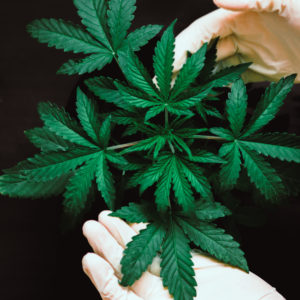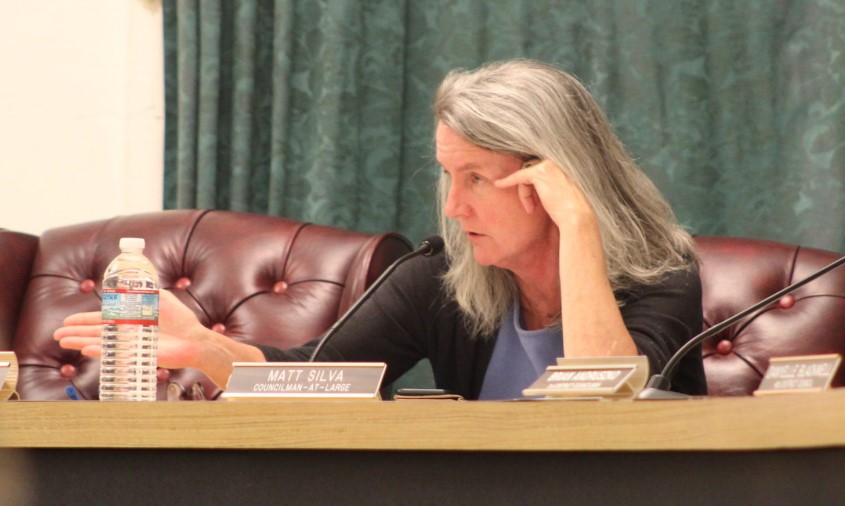POINT: The Dangers of Legal Marijuana Outweigh the Benefits

For an alternate point of view, see: COUNTERPOINT: PA Should Join Neighboring States to Legalize Marijuana
When I was in high school 20 years ago, marijuana use was generally confined to buying dime bags of dry flower that had a THC potency in the single digits (THC is the psychoactive component of marijuana that gives the high). No one was vaping marijuana because vaping wasn’t around yet.
Today, not only has marijuana flower been industrialized to produce upwards of 30 percent THC and more, but you have a host of new delivery mechanisms – including vapes that come in a kids’ menu of flavors like Blueberry Cookies and Orange Crush – that can range between 80-90 percent THC and higher.
No longer are teachers and educators just finding a few students smoking weed under the football field bleachers but are now confronting students vaping marijuana in school, not only in bathrooms but right in the classroom as well, with devices disguised as USB drives and even yellow highlighters.
We have never experienced a time in history when the potency strength of manufactured marijuana is as high and in such a diverse set of products as it is today, and children and young adults are using today’s marijuana at record rates. Both facts are colliding, and the impact of this wreckage is made significantly worse by a state government that encourages its recreational use through legalization.
Earlier this year, researchers at Temple University released a study finding that more children and young adults use marijuana because of states legalizing its recreational use, particularly due to the lowering of perceived harm by making it legal. It is a logical conclusion: if you increase access, you increase use.
We know that using today’s industrialized marijuana with upwards of 99 percent THC can have damaging health consequences, including marijuana use disorder (MUD), the medical term for addiction; risks that increase exponentially for those using in their mid-20’s or earlier as it impacts their developing brain.
“The risk of developing marijuana use disorder is stronger in people who start using marijuana during youth or adolescence,” states the CDC. And according to the Substance Abuse and Mental Health Services Administration (SAMHSA), addiction rates nearly double when you start using before age 18.
Addiction to marijuana? Yes, science has proven today’s marijuana can absolutely be addictive, and rates are steadily increasing. Yet there are some Pennsylvania state lawmakers who dismiss the addictive traits of marijuana. State Representative Jordan Harris (D-Philadelphia) has gone so far as to claim not only that marijuana is not dangerous or addictive but that the only thing at risk with legalizing marijuana for recreational use is potato chips and Fritos – alluding to getting “the munchies” after use.
Not only is this joke insulting to families who have been directly impacted by the harms of marijuana use, but it denies the existing science and evidence that are contrary to those archaic claims. There’s a reason why every major medical association is opposed to legalizing recreational use.
We know that there has been a significant change in potency strength in the last decade. In 2014, Washington State’s total market of manufactured marijuana extracts was 9 percent. Today, extracts are now 35 percent of the market. This growth has led to calls for potency caps.
“Twenty years ago, prescription opioids were seen as a breakthrough in pain relief,” writes The Seattle Times Editorial Board. “We understand now the human costs of addiction and dysfunction. This state should not make the same mistake with high-potency marijuana.”
We also know that, in states like Colorado, the commercialized sale of marijuana – backed by Big Tobacco and their predatory history of targeting teens for addiction – has led to more marijuana shops than McDonalds and Starbucks combined. This market proliferation is also reflective in the use of social media and billboards advertising these harmful products.
Additional harms caused by marijuana legalization include an increase in DUIs and drugged driving fatalities. Evidence from the two states who started experimenting with marijuana legalization for recreational use, Colorado and Washington State, both witnessed an increase in motor vehicle accidents and fatalities.
A 19-year old woman from Pennsylvania was recently charged with involuntary manslaughter and DUI after having marijuana in her system when she was driving and killed a motorcyclist and father of three. If we don’t want an increase in these types of scenarios, then we should listen to law enforcement and safety associations like AAA and oppose marijuana legalization for recreational use.
When voters are given options of marijuana policy that are not just a one-size-fits-all model for recreational use, options that include ways to address the criminal justice system, voters often do not favor full recreational sales.
Here in Pennsylvania, there are options available to our state lawmakers to improve our medical marijuana program. The question is who do we help: an addiction-for-profit industry or our children? Will we protect public health and safety or subject communities to the harms caused by commercializing manufactured marijuana?
I know my choice.






